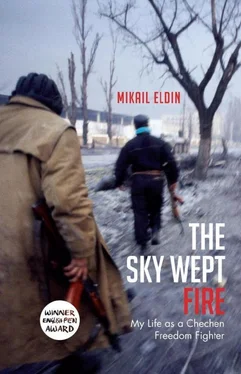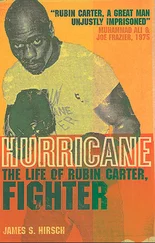You ought now to relish this indefinite period of rest. But it seems you have grown completely wild in this war. You simply don’t know how to occupy yourself. You cannot write yet. In this situation you couldn’t hope to preserve even a fragment of your writing. You do not yet know that soon (a week after your arrival) you will set off with a group of fighters to take up new positions at the top of a mountain, and for a long time you will be stuck there, in the winter forest, encircled. Then when you finally leave – still alive – you will hear the terrible news of the tragedy in the village of Komsomolskoye. And you’ll long regret the fact that you survived, and feel your guilt before those who perished. As if, had you been there with them, it could have changed something. But that will come later. Now you need to rest. Yet for some reason rest does not come. Your soul is troubled. You feel people are tired of the war. And that is the most disastrous thing that could happen. That is bad.
The group that had broken out of the sealed city and for two weeks fought their way across occupied territory to reach Shatoy district in the mountains met a depressing state of affairs. Almost all of the commanding heights had been captured by the enemy. The vast majority had been brought under control as the breakout from Grozny was underway. That is, over the past two weeks. The Russian Army command, realizing how the situation might escalate if the Grozny group joined the fighters in the mountains, took urgent action to seize the commanding heights, creating for this purpose the special Army Group Centre. This force operated from the south, moving up from the border with Georgia and dropping airborne troops to capture the heights as they met up with troops advancing from the plain. As ever, the Russians paid scant regard to losses among their own soldiers. And their preemptive tactic worked.
Our group arrived in the mountains to find itself effectively locked in. The key feature of mountain combat is that the side which controls the heights over the roads and tracks, over everything essential to life, controls the entire situation. And here the situation clearly favoured the enemy. What’s more, we were facing a food crisis. The local population, a potential supplier of provisions to the fighters, was suffering acute shortages. The Russian political and military leadership had been enforcing a blockade of the mountainous districts, barring humanitarian organizations from travelling to the area with food aid. They knew that the fighters would be powerless if they lost the support of the population. And this could only be achieved by pushing the people themselves to the brink of survival.
Some time later, when the resistance had withdrawn from the mountain districts and the Russian troops entered them, it was discovered that certain unscrupulous Chechens had been making a lot of money out of this human disaster. They had gone to the people and told them, ‘I’ve struck a deal with some Russian Army men. They’ll give us an armed escort for the trip to buy food at the market in Shali. [47] Shali is a town in eastern Chechnya; at this time it was under pro-Moscow control. It had a large market where you could purchase food and essentials.
But they need a hundred dollars from each person.’ Being completely trapped, the people agreed to pay from the last of their savings what was at the time a huge sum so they could survive. It later emerged that the Russians had not demanded any payment at all. One woman could not come up with the full sum. All her appeals via the Chechen middleman for the price to be reduced fell on deaf ears. In desperation the woman decided to go straight to the Russian officer. When he heard her plea for him to accept ‘a little short of one hundred dollars’, he was astonished. And when he learnt who had been collecting such sums, allegedly on his behalf, the officer confronted the Chechen in front of everyone: ‘When did I ever ask you for a hundred dollars? I just asked for some cash for booze and fags, and only if you could spare it and didn’t mind. I’m not offering to take you for money; I’m doing it because I want to remain human.’ The most interesting detail in this story is that the Chechen middleman was a well-known and respected religious figure in the mountains. Or at least he was until that day.
It was not possible to procure food from outside the republic. The only road connecting Chechnya and Georgia had been held by the Russians since December. And the resistance fighters, armed only with small-arms fire and coming under bombardment from the air, could not attack the well-fortified enemy positions, defended with mortar batteries, mountain guns, anti-tank guided missile launchers and the like, on the commanding heights above the road. Of course, they began fighting fiercely to recover the heights from the enemy and they even enjoyed some success in this. But they could not turn back the tide on a larger scale. The command of the Chechen resistance was clearly faced with the task of switching to the tactics of guerrilla warfare. And guerrilla warfare follows entirely different rules: it is a war to grind down the enemy.
The snow falls thickly. The February snow is damp and malleable. The moisture soaks right through your clothes and you freeze even more than in the biting cold of January. The February frost gradually chills you to the bone, and it doesn’t abate for a long time. Today you’ve withdrawn from the heights you were holding, and you’re hiding in a remote ravine in the forest. Your small unit has split up into four groups and fanned out. You have one night to dig a dugout by hand and go underground. You have to disappear before the enemy do an air reconnaissance. Sodden with sweat and snow, together you dig into the frozen ground. Only the top layer is frozen: beneath there is ordinary soil, full of stones and tree roots. The soil in the mountains is always stony. But you’ll be underground by dawn regardless. You’re no stranger to this task. ‘Work your hardest, then work harder.’ Before dawn you have finished the dugout. You cover it with a double layer of logs, disguise it with snow and the freeze begins. Your sweat is cooling down and your clothes are soaked through. With you is a wounded comrade. You cannot light fires in the forest – enemy troops are all around and close by; they are based in the village just a kilometre and a half away. The dugout has no stove, so there’s no flue. The hole in the roof does not draw the smoke up. This is not the steppe, where the winds roam free – it’s a mountain forest. You light a small fire on the floor of the dugout and try to keep warm. But you merely poison yourselves with pungent smoke. Luckily, it is getting light and you need to extinguish the fire. The next evening some of your comrades make their way from the village to you. They bring a little food and a milk churn with a chimney pipe. You adapt the churn to make a perfect stove, and you no longer freeze at night. But during the day it is still cold. You cannot use the stove during the day: the smoke would be visible for miles.
There is plenty of water. A small brook runs along the floor of the ravine. True, it is icy cold, but it’s excellent for maintaining hygiene. You couldn’t, of course, wash clothes in it – there’s nowhere to dry them, but you can certainly wash yourself. You quickly get used to it. On the road to the ravine there’s a Russian checkpoint. The only path to your camp goes along the floor of the ravine. Once every two or three days your comrades take this path to bring you some food. But to reach you, they must hoodwink the soldiers on duty. One of them heats the bathhouse, prepares a good spread, and invites the frozen, half-starved soldiers and their officer: ‘Come and take a steam bath, have a break from the war with some home cooking.’ And while the soldiers relax, your friends have time to bring you provisions. Your enemies know that you are somewhere in the forest; you heard them say so on their radios. But without knowing which grid square you are in, they cannot blanket it with artillery fire and air strikes. And they don’t have the appetite for entering the forest and combing it – the losses would be unjustifiably high. So they prefer to block all the paths from the forest and wait. Wait for the snow to melt. The brief period between the snow and the spring foliage is when you are most vulnerable. In the meantime, what matters for them is not to let you out and not to let food in to you. At night, while you use the stove, the snow on the dugout melts and unmasks you, so each dawn you have to recoat it in snow. A few days later, though, your friends deliver some white sheets and you arrange them over the dugout. No matter how difficult the conditions, the camp requires round-the-clock guarding. You take turns at keeping watch in half-hour shifts. Standing any longer would be difficult – the frost is merciless. But there are only a few of you, and you have to relieve each other too frequently. You don’t get time to rest and catch up on your sleep. So you propose having longer shifts and thus longer breaks for resting. This helps. Now you’re standing on guard for longer and you also get longer to rest. Whoever is on duty has to keep watch over the entire camp, not just cover one direction. That means he has to keep moving about. And a man who is continually moving has less chance of freezing.
Читать дальше












